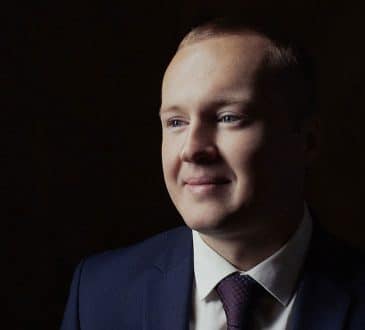Socially responsible investing (SRI): Implications For CEOs

Socially Responsible Investing (SRU) is mostly the same as regular investing. Funds are still allocated, and returns are still made. The key difference is that SRI takes other non-monetary factors into consideration. Some types of SRI seek to discourage certain industries its investors disagree with. Others simply invest in companies or areas that they are passionate about.
SRI has exploded in popularity in recent years, with some estimating that potentially trillions of dollars worldwide has been invested with this mindset in play. As the global economy and affluence continues to grow, the increase in discretionary income will enable more and more people to put away their money in this manner.
The History of SRI
The earliest major impetus for SRI started in the 1970s with the environmental movement. More and more people were becoming concerned that blind pursuit of profits over everything else would have negative consequences for the planet and future generations.
This was where the idea of compromising some profits in order to achieve a societal good really came into being. Many believed that even though environmental safeguards could be costly in the short run, in the long run the planet and society would be better off which many considered a worthwhile trade off.
This slowly but surely found its way into the investing world. More and more people who were inspired by the environmental movement wished to spread this idea throughout society and believed people should put their money where their mouth is. And with that, the idea of SRI was born.
Fast forward to this decade, and technology has been a boon for SRI. This is because the same technology that has enabled regular investment vehicles to become more accessible to the public at large has done exactly the same for SRI-themed ones as well. Many banks as well as personal finance and investment tools have taken this step as seen in this Personal Capital finance app review.
Characteristics of SRI
The main similarity of SRI and regular investing is the basic method of pooling funds from a group of people and investing it with the hope of generating returns. After that, there are many things that differentiate SRI from regular investing.
The most obvious one is that SRI takes into account a wide variety of non-financial considerations before deciding where to park funds. Whereas traditional investing focuses almost exclusively on amount of investable funds and risk tolerance, SRI focuses on the societal outcomes that are desired by their specific niche of investors.
Another main characteristic of SRI is noticeably higher fees. This is mostly because if the nature of SRI which takes in more factors into consideration and therefore produces higher management costs. But since SRI investors take more than money into account, they are usually accepting of taking a monetary drawback in exchange for achieving their goals.
Finally, SRI funds generally speaking have higher volatility in either direction depending on the year. This is a result of concentrating investing into certain industries instead of casting the traditional wide net. When those industries outperform the market, so will SRI funds in general and vice versa. This appears to not have fazed SRI-minded investors.
Implications for CEOs
Traditionally, the goal of most businesses has been to maximize profits. CEOs usually have to find a balance between the next quarterly statement to stockholders and planning for the next decade. Whoever failed at striking this balance were dealt with by the markets swiftly and severely without remorse or emotion.
With the rise of SRI, businesses are increasingly seeing the need to take non-financial factors into account simply because more and more money in the market is held by people who are SRI-minded and this trend is poised to keep going for the foreseeable future, so it does indeed pay for businesses to pay attention to this.
Many CEOs have responded by changing the way they conduct their operations in a way that still keeps them in the black but also shows their awareness of social issues and their willingness to be a part of the solution either directly or indirectly.
Some CEOs have even allocated funds on a regular basis that are to be devoted to social causes. Whether it is funding the local soccer team or raising funds for cancer awareness, there are certainly many ways that businesses can show support for their local community that will have positive long-term consequences for their image.
The Way of the Future?
As global affluence continues to increase, rising disposable incomes seems to point to a solid increase in the popularity of SRI for the foreseeable future. And as technology continues to close the gap in costs between SRI and traditional investing, many more people seem poised to jump in on the trend.
What people choose to do with their money is generally seen as their business, and it would seem that as concern over social issues continues to rise, so too will the number of people who make the conscious decision to take the plunge into the world of SRI.
Have you read?
# Countries With The Highest Average Life Expectancies In 2030.
# The World’s Best Performing Companies 2019.
# The World’s Safest Cities Ranking, 2019.
# World’s Most Luxurious Hotels, 2019.
Bring the best of the CEOWORLD magazine's global journalism to audiences in the United States and around the world. - Add CEOWORLD magazine to your Google News feed.
Follow CEOWORLD magazine headlines on: Google News, LinkedIn, Twitter, and Facebook.
Copyright 2025 The CEOWORLD magazine. All rights reserved. This material (and any extract from it) must not be copied, redistributed or placed on any website, without CEOWORLD magazine' prior written consent. For media queries, please contact: info@ceoworld.biz








